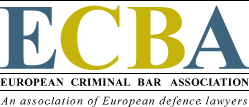Combating cartel offences is on the European centre stage. The EU commission’s way of combating alleged cartels by draconian sanctions was subject to criticism from the very beginning. However, the pinnacle of cartel regulation was reached when Council Regulation (EC) No 1/2003 was introduced. Since then, if a company infringes Art 81 or Art 82 of the Treaty – for example by price-fixing – it can be held liable to an administrative fine that shall not exceed 10 per cent of its total turnover in the preceding business year.
The commission exercises its discretion within a statutory range from nil (refraining from imposing a fine) up to any sum only capped by the 10 per cent-limit. Deterrent surcharges are made of up to 300 per cent of the base fine. Refusing to co-operate is considered an aggravating factor. Running a sanctioning policy where the precise sanction is not know in advance is deemed to be advantageous because it increases the deterrent effect. This sanctioning policy is combined with a leniency programme which is designed to trigger a race for amnesty by self-reporting, but only grants a reasonable reward to the company that comes first. The EJC is regularly upholding the commission’s decisions. The enormous scope of discretion lying with the commission is judged necessary in order to pursue the competition policy’s objectives.
This regulatory regime flies in the face of the rule of law. It seriously violates the principle of certainty, the principle of culpability, the protection against self-incrimination, and the principle of the separation of powers. For that reason alone the antitrust matter merits examination and consideration by a working group.
However, there is an additional ground to be mentioned. The United States, which imposes notoriously draconian penalties, admires this EU-cartel concept as a model of success, and there is a danger that the EU policy as to cartels may become the blueprint, masterplan or example for future projects under EU criminal law. We should be concerned to ensure that it is appreciated that the EU criminal law has clear principles and should not be used as a mere deterrent tool ignoring citizens’ rights.
The Antitrust working group was chaired by Kai Hart-Hoenig.
On 6 January 2010 the European Commission published guidance aimed at providing companies with further certainty and transparency about the relationship between them and the European Commission during EU competition law (also known as antitrust) cases. Such cases involve the EU prohibitions on restrictive agreements and on abuse of dominance. The guidance does not apply to state aid cases or merger cases (apart from in relation to submission of economic evidence). Issues covered by the guidance include publicity regarding the opening and closing of competition cases as well as rejection of complaints about breaches of competition law.
The guidance comprises three documents:
- Best practices for antitrust proceedings
(ec.europa.eu/competition/consultations/2010_best_practices/best_practice_articles.pdf); - Best practices for submission of economic evidence antitrust and merger proceedings
(ec.europa.eu/competition/consultations/2010_best_practices/best_practice_submissions.pdf); - Guidance on the role of the Hearing Officers in antitrust proceedings
(ec.europa.eu/competition/consultations/2010_best_practices/hearing_officers.pdf).
European Criminal Bar Association’s (ECBA’s) statement as to the public consultation of the European Commission on the functioning of regulation 1/2003.
This document is currently only available as pdf document.
Please click here to open.
